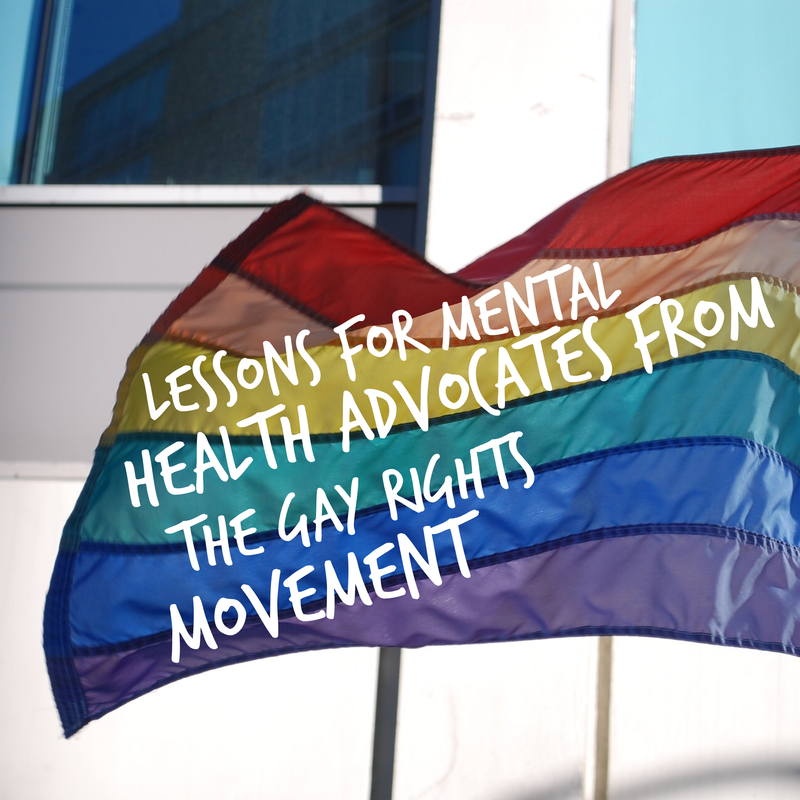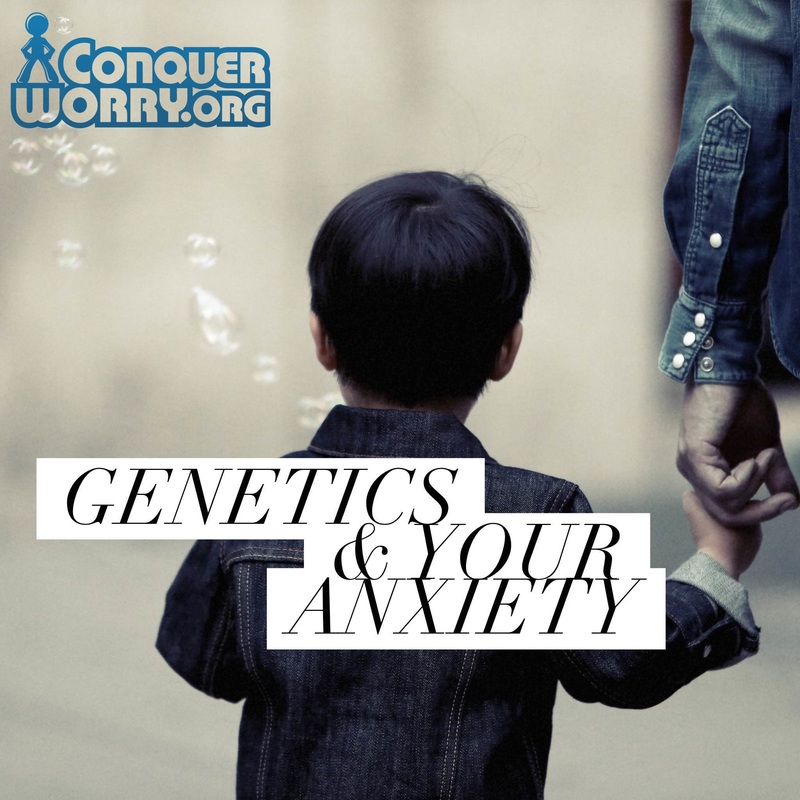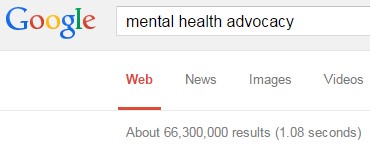|
The Story of The Dutch Hunger Winter In 1944, at the end of World War II, food supplies became scarce in the Netherlands and a harsh early winter set in. This resulted in an well documented, awful famine. The Dutch kept great records so researchers have been able to study the long term effects on the children of women who were pregnant during this period. Researchers think that these children, as fetuses, had their nervous system changed as their mother struggled with starvation. 60 years later, these children are found to(1): .
It is important to not blame your parents or upbringing on your struggle, but to accept that there could be many factors that drive your anxiety. Managing your mental health is a battle.........it helps to know the roots of what you are fighting.
Please seek professional medical help if you are struggling. Jay Coulter
3 Comments

This is not a political post…….they are not allowed on our platform and I don’t write them.
After watching the reaction in the United States to the Supreme Court’s ruling on gay marriage, I feel that there is an opportunity for the mental health community and our advocacy efforts. The Reaction The reaction from the news media, government, corporations, celebrities and social media has been astonishing.
Could you have imagined any of this a decade ago? What happened and what can we learn from this massive paradigm shift to help people struggling with mental illness? The Math The Center for Disease Control (CDC) issued statistics in 2014 (Link) finding that 96.6% of adults over the age of 18 identified as straight. This suggests that about 3.4% of the population was directly affected by the ruling. The National Alliance on Mental Illness tells us that 1 in 4 adults are effected by mental illness. Said differently, over seven times the number of people are battling mental illness than had a vested interest in the right to marriage equality. A simple Google search comparing results for each causes efforts tells the same story. Gay rights advocacy returned 17.9 million results verse 66.3 million for mental health advocacy.
The Implications
There are thousands of fantastic people and organizations working in the mental health community. But, the reality is we are not getting the same results as those working for gay rights. Why is that? I have never wanted to ‘fight stigma’ with the ConquerWorry.org platform. Based on my experience it just appeared futile as someone is going to think what they want to think. I am starting to change my thoughts on that narrative. Last year I had an opportunity to interview Dr. Jon Rottenberg on the Conquer Worry Podcast. He is the author of The Depths: The Evolutionary Origins of the Depression Epidemic. He suggested that the youth of today are open to social change more than any other generation. Jon went on to say that could have long term implications for the mental health community as it relates to stigma. After seeing the reaction to the Supreme Courts ruling, I have to agree and the power of grassroots stigma fighting are apparent. Consider that A WSJ/NBC survey in March found that 59% of Americans support same-sex marriage while in 2004 that number was only 30%. A 100% increase in 11 years! The Goal Our mission at ConquerWorry.org has been to create awareness of the resource that are available to those who struggle with their mental health. The first step to recovery is getting professional help and it is a step that too few people actually take. The consequences of not getting help can be dire. Imagine if corporations, governments, celebrities and social media platforms were actively advocating to reduce the stigma for those struggling with their mental health? What type of results would we see? How many lives could be saved or changed for the better? Let’s get to work. Jay Coulter 
Jay Coulter is a Mental Health Advocate, Professional Speaker, Blogger, Podcast Producer and founder of ConquerWorry.org. The platform's mission is to create awareness of the resources that are available to those who struggle with their mental health. Conquer Worry has over 100,000 social media followers and we would love to have you in our community. The ConquerWorry.org community can be found online and on most social media platforms.
TWITTER | FACEBOOK | INSTAGRAM | PINTEREST | MEDIUM The Conquer Worry Podcast with Jay Coulter can be found on iTunes |YouTube | Stitcher | TuneIn Radio

Jay Coulter is a Mental Health Speaker & Advocate. His team founded the mental health advocacy platform Conquer Worry. Their mission is to create awareness of the resources that are available to those who struggle with mental health. In addition to a Podcast - The Conquer Worry Show, they have quickly built a large audience with over 100,000 social media followers:
Twitter | Facebook | Instagram | Pinterest  The Weight of the Ring By Nancy Davies (@nancydavies55) The backyard deck was a mess. It had dry rot and a collapsing framework. We were heading into summer and couldn’t ignore it any longer. After getting estimates on demolition and rebuilding, my husband Tom decided he would tear it down himself. It took a few weeks of knocking down, cutting up and hauling away for the old deck to be gone. What was left was a lot of rock-strewn dirt and yard debris that would soon be covered by a new structure. Being a man who likes things orderly, Tom decided to clean up the area and rake the ground into tidy symmetrical lines. As he was raking leaves and rocks and putting them into the yard debris can, a shiny object caught his eye. A bottle cap, he thought; evidence that our once teenage children and their friends had been drinking beer out there one night when we were gone. As he reached down to pick it up, he realized that it wasn’t a cap at all. It was a ring. It was my wedding ring that I had lost 23 years earlier. At the time, we tore the house apart looking for it. We never dreamed it was outside in the backyard. What makes this story more amazing is that we didn’t even have a deck when I lost it. This area was all grass. So for about 5 years the ring sat in the grass with kids and dogs and sprinklers and lawn mowers. Then we pulled up the grass, brought in a small Bobcat bulldozer to level the ground, laid down a layer of gravel and built a deck. And there it sat for another 18 years. Just waiting. Twenty three years ago our son Brett was just shy of 2 years old. He was going through a phase of grabbing things off the bathroom counter and flushing them down the toilet. We’d walk into the bathroom and find toothbrushes and underwear in the toilet. A scream was let out and I’d know that one of Brett’s sisters had come upon a floating My Little Pony. I would sometimes leave my wedding ring on the counter in our bathroom. After days of searching, we came to the conclusion that it had fallen victim to Brett’s flushing obsession. It was a story I told countless times when the subject of lost wedding rings came up. Brett must be feeling pretty vindicated right now, you say, after years of carrying this misguided accusation. Well, yes and no. Brett struggled with anxiety for years and reached a point where he was no longer able to cope. At 15 years old, he tragically lost his life to suicide. Tom found the ring on a Sunday afternoon when I was off running errands. He was so overcome with emotion that he was shaking. He wasn’t sure what to do next. In a moment of clarity, he remembered that our anniversary was coming up. He would have the ring cleaned up and give it to me as a surprise. Over the next couple of weeks, Tom began to feel the burden of being the ring bearer. He was having a hard time waiting and on several occasions he almost let it slip. He told people at his office about his plan and they had started a pool on whether he would crack and give it to me early or go the distance. On a Saturday night, Tom & I went out to dinner to celebrate our 31st wedding anniversary. He put the small, wrapped ring box on the table in front of me. Opening it, my confusion turned to complete amazement and then to tears. It was our own little miracle. What were the chances that this ring would ever be found after so long? What if he hadn’t stooped to pick up a bottle cap? What if he had raked the dirt in the opposite direction? What if we’d moved? Why wasn’t it found after a month or a year? Why now? The next morning we were downstairs in the kitchen when we heard the toilet flush upstairs in our bathroom. We looked at each other; there was no one else in the house. It happened again a little later. We didn’t know what to think. Tom went up to investigate. He said there was a worn out part that was slowly leaking; he’d get a new part and fix it. No big deal. Except it is kind of a big deal. The timing to have a random flushing toilet the morning after he gives me the ring – that we thought had been flushed – seems much more than coincidental. I’m convinced it was Brett’s off-kilter sense of humor getting in the last laugh. The other day I’m telling a friend the story and showing her how perfectly the ring survived it’s 23 years in the elements. She is amazed that everything is still intact. “It’s incredible,” I say. “The only thing that is missing is a very small gold pin that was anchoring the diamond to the band. There use to be four, one in each corner. One fell out and now there are only three.” Just as I say this, a jolt runs through my entire body and sits in my chest. There is a voice in my ear as clear as day that says, “Don’t you get it? There use to be four and now there are three.” I use to have four children and now I have three. One child is missing. And now I am feeling the weight of the ring settling in unexpectedly on my shoulders. I have been given a gift of this beautiful little story and I’m not quite sure what to do with it. Is it a human interest story? Is it a metaphysical story? The ring was found right before our anniversary. Maybe it’s something about recommitment. Could it be a spiritual story along the lines of what was once lost is now found; the parable of digging for treasure just beneath the surface; or perhaps the prodigal son returning home after a long absence. Or is it a story about Brett, which is in part, a story about teenage suicide? And not the kind of suicide in young people that you mostly read about. He was not bullied or abused, neglected or gay. He grew up in a middle class family that adored him. He had close friends who loved him. He had a mental health issue in the form of anxiety that wore him down to where he was no longer able to survive. In a society that views depression and anxiety as a weakness, something to be embarrassed by, it’s a difficult thing to admit to. As a teenager, it’s downright brutal. There is something inside of me that wonders if this hasn’t all fallen into place by some grand design. If the ring had been found after a week or a month or even a couple years, it wouldn’t be that unusual of a story to tell. If it had been found before Brett had died, the flushing toilet and the missing pin would mean nothing, and possibly wouldn’t have even happened. It wouldn’t be a story worth much discussion. I can’t help but think that in some roundabout way this story is meant to be a catalyst for starting a conversation about teenage suicide and the importance of open and honest conversations regarding mental health issues. What a gift to the next generation if we can open the door to talking about depression and how it’s managed as though we are talking about bed rest and fluids when we have the flu. By changing how we see mental health and taking away the stigma, I would hope that more people would seek help early on and more professionals would look into alternative ways to manage it. I suppose my hope in putting this story out there is that in some roundabout way, there’s the chance that it might help to save a young life. Note: The picture above is of the actual ring.  The problem with stress is the higher levels of the potentially evil Cortisol that it can produce. Short periods of high cortisol levels are a necessary function of human survival. But, long periods of elevated levels are dangerous. The problems associated with prolonged periods of elevated cortisol levels include[1]:
Here are a 12 ideas to lower your stress and manage those deadly cortisol levels. Get A Massage Research from The University of Miami School of Medicine found that massage therapy has positive effects on biochemistry including decreased levels of cortisol and increased levels of serotonin and dopamine[2]. Laugh Research has shown that the laughter experience appears to reduce levels of cortisol[3]. So, watch a funny movie or jump on YouTube and check out your favorite comic. In fact, even anticipating a laugh may boost health producing hormones that can help lower cortisol[4]. Find Your Spirituality Research from Sigmund Freud University, Vienna, Austria found that "there is good evidence that religious involvement is correlated with better mental health in the areas of depression, substance abuse."[5] Drink Black Tea Research conducted by Andrew Steptoe, Ph.D. and published in the Journal of Psychopharmacology found that Black Tea can help someone who is struggling with stress and their cortisol levels. Specifically, 6 weeks of consuming black tea could lead to "lower post-stress cortisol and greater subjective relaxation."[6] Get Enough Sleep Research from the Department of Medicine at The University of Chicago found that sleep loss may affect the resiliency of the stress response[7]. Mediate Research out of Australia found that meditation has "specific effects to work stress."[8] Listen To Music Research published in Frontiers in Psychology found that music can reduce cortisol levels[9]. Austria research has found that the type of music matters. Specifically, YOU need to pick your own music![10] This makes sense as obviously you are the only one who knows what you prefer. Focus On Your Diet Eat a balanced diet[11]…..First, try your best to avoid sugars and flours. Eat plenty of fruits and vegetables. Eat a balanced, nutritious diet that contains plenty of fruits and vegetables. Eggs help lower cortisol levels in the blood while whole grain products help proteins control the production of cortisol in the body. Exercise Exercise on a daily basis to help with weight loss and weight management. Exercise also produces ‘feel good' endorphins that are released in the brain and combat stress and anxiety, a natural way to decrease the production of excess cortisol. Research from the Mayo Clinic found that yoga is a fantastic stress fighter.[12] Take Your Vitamins Take vitamin and mineral supplements, especially Vitamin C, which naturally lowers cortisol levels. Folic acid controls the actions and functions of the adrenal glands, which produce cortisol. Vitamin B5 and folic acid help lower cortisol levels. They can be found in foods like beans, fish, whole grains, peas, beans, sunflower seeds and fruits such melons and oranges[13]. Have A Lot Of Sex Best. Research. Ever. Have sex for 14 straight days…...and reduce your anxiety! "Chronic sexual experience also reduced anxiety-like behavior. These findings suggest that a rewarding experience not only buffers against the deleterious actions of early elevated glucocorticoids but actually promotes neuronal growth and reduces anxiety."[14] Get Some Sun Getting sunlight can help lower your stress levels and the effects of Seasonal Affective Disorder (SAD) [15] Researchers in Melbourne found that “levels of serotonin—a neurotransmitter that regulates appetite, sleep, memory, and mood—are lower during the winter than the summer”[16]. So, spend a few minutes each day getting some rays. -------------------------------------------------------------------------------------------------------------------------------------------------------- Jay Coulter is a Mental Health Advocate and founder of the mental health advocacy platform Conquer Worry. Their mission is to create awareness of the resources that are available to those who struggle with mental health. With over 87,000 followers on Twitter (@conquerworry) and a growing Facebook community , they have expanded their outreach with a podcast - The Conquer Worry Show. -------------------------------------------------------------------------------------------------------------------------------------------------------- [1] http://www.myprimetime.com/health/ailments_answers/content/sleeping_in/ [2] http://www.ncbi.nlm.nih.gov/pubmed/16162447 [3] http://www.ncbi.nlm.nih.gov/pubmed/2556917 [4] http://www.the-aps.org/mm/hp/Audiences/Public-Press/Archive/08/10.html [5] http://www.ncbi.nlm.nih.gov/pubmed/23420279 [6] http://link.springer.com/article/10.1007%2Fs00213-006-0573-2 [7] http://www.ncbi.nlm.nih.gov/pubmed/9415946 [8] http://www.ncbi.nlm.nih.gov/pubmed/21716708 [9] http://journal.frontiersin.org/Journal/10.3389/fpsyg.2011.00058/full [10] http://www.ncbi.nlm.nih.gov/pubmed/21704068 [11] http://www.livestrong.com/article/28618-lower-high-cortisol-levels-naturally/ [12] http://www.mayoclinic.org/healthy-living/stress-management/in-depth/yoga/art-20044733 [13] http://www.livestrong.com/article/28618-lower-high-cortisol-levels-naturally/ [14] http://www.plosone.org/article/info%3Adoi%2F10.1371%2Fjournal.pone.0011597 [15] http://www.webmd.com/depression/features/seasonal-affective-disorder [16] http://www.healthline.com/health/depression/benefits-sunlight  The Robin Williams story has hopefully shined a new spotlight on Mental Health issues. My hope is that someone who is struggling and has not started the process of getting help will use this as a catalyst. If you are struggling, please seek help as quickly as possible. The links below will take you to our list of global resources. Global Support Groups: Click Here Global Advocacy Groups: Click Here As the shock of the past week starts to fade, we hope to keep the spotlight focused on the resources that are out there for those who are struggling. Hopefully the media keeps paying attention to this epidemic. Here are a couple of recent articles on the tragedy that give us hope.
The Conquer Worry Team will continue focusing on our mission......Creating awareness of the resources that are available to those who struggle with mental illness. We would love to have you on our team.
 By Jude Burger "I was in my thirties when I finally (better late than never!) found out that it was my reaction to food chemicals that caused my depression and anxiety. Previously, my whole life I'd spent off-and-on depressed, uptight and moody and I couldn't understand why. When I felt great, I was upbeat, strong, energetic and optimistic. I couldn't understand the times that I felt my life was worthless and pointless. I would have incredibly debilitating episodes that completely shut me down - I'd only see blackness. Those depressive episodes felt so real at the time, yet were completely nonexistent at other times. It was crippling - I never knew when I'd feel bad and I couldn't plan my life around it. I finally came across the elimination diet via Sue Dengate, from Australia's Food Intolerance Network. I'd always somewhat suspected that my food might be a contributor to my mood, but I didn't know how to go about testing that suspicion. I made sure I ate well, mostly healthy and organic things, but I'd have my favourite 'treats' too. I started the diet (which is quite restrictive for the first couple of weeks), and within days, I felt better. Other symptoms, mostly physical, cleared. I therefore knew that food was affecting me. It was only when I started the "challenges" (the slow introduction of foods that are known to impact people) that I could see what the full impact of these food chemicals were doing to me. The resultant depressive episode/s were totally conclusive to me. As you can imagine, I am very careful with what I eat now. I therefore have those depressive episodes very, very rarely, and only when I have taken a calculated risk at a particular restaurant -- and lose! I know that there are certain preservatives, sorbates and benzoates that I cannot eat without falling into one of these moods. The diet changed my life, and through my research and work with the Food Intolerance Network it has clearly changed the life of thousands of other people. Whilst my life has been greatly improved with this knowledge over the last several years, in 2013 I realised that it is still not mainstream knowledge. There will be others who are similarly affected, and don't know about food intolerance and its affect on mood. Someone challenged me to write an ebook about it, so I did! You can find it here: http://www.foodandmoodbook.com. I wrote about my story, other people's stories, and included relevant scientific studies. I introduce the elimination diet, as well as some potential causes and treatments. I wish you all the best in your own journey."  We found a woman who has shown great courage telling her story of struggle, hope and success with mental illness. We are passing this along to show those who are struggling today, it does get better. From her blog: "My name is Nicola and around 5 years ago I had a nervous 'breakthrough'. I write this blog in order to share with others the things that saw me through." For her full story and blog, Click Here.  By Dr. Mike Hart (drmikehart.com) "Anxiety is one of the most frequently diagnosed illnesses in North America in the 21st century. Anxiety does not discriminate and affects people of all races, age, social economic status and sex. There are countless pharmaceutical and non-pharmaceutical treatments available to treat anxiety, some of which are more readily available as well as more expensive than others. Lost in the current mainstay treatments available for anxiety is heart rate variability (HRV) training. What is heart rate variability and how can it cure anxiety? Heart rate variability is the physiological phenomenon of variation in the time interval between heartbeats. The longer the interval between each heart beat, the more appropriately your body responds to stressful situations." Full Story: Click Here  Summary: This blog post by @daniel_l_baker challenges those who suffer (as the author has) to set their goals higher and have a different attitude towards your illness. This a refreshing look at tackling a mental health struggle from a man in his mid 20's. He suggests answering these questions with pure honesty, and adjusting your attitude and approach accordingly:
The author runs the 'Depression is not Destiny' program. By: Danny Baker (@Daniel_L_Baker) Full Blog Post: Click Here |
Build Your Action Based Stress Reduction System
Popular PodcastsOlympian Suzy Favor Hamilton - From Fame to Prostitution to Advocacy
Hall of Fame Basketball Star Chamique Holdsclaw on Mental Resilience Diana Nightingale on her husband Earl Nightingale's Principles for Mental Health Success JoAnn Buttaro on Date Rape & PTSD Survival Story: Its Never Too Late Gabe Howard on BiPolar Advocacy Phil Fulmer on Teen Suicide Prison, Bipolar and Mania with Andy Behrman Columbia Univeristy's Dr. Rynn on OCD Archives
March 2018
Categories
All
|







 RSS Feed
RSS Feed





